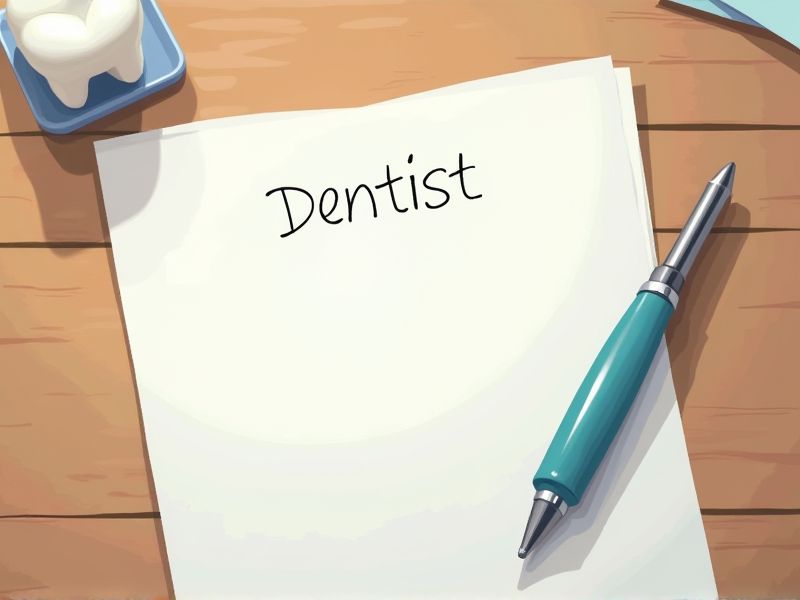
Dentists require specific certifications to ensure they possess the necessary skills and knowledge to provide safe and effective patient care. Regulatory bodies mandate these certifications to maintain high standards of practice and patient trust. Continuous updates in dental technology and procedures also necessitate ongoing education and certification. Here are some important certifications you may need to pursue a career in dentistry.
DDS (Doctor of Dental Surgery) or DMD (Doctor of Dental Medicine) Degree Certification
To practice professionally, a DDS or DMD degree certifies a dentist's competence in comprehensive dental care. The American Dental Association requires this certification to uphold standards of clinical expertise and patient safety. State licensure mandates a recognized dental degree, ensuring dentists are well-trained in diagnosing and treating oral health issues. Accreditation ensures dentists receive education grounded in current scientific research and ethical practices.
State Dental License
A state dental license ensures that a dentist has met specific educational and professional standards, safeguarding public health. Without a license, dentists cannot legally practice, risking patient safety and legal repercussions. Licensing allows for disciplinary actions and monitoring, maintaining ethical and professional conduct. It encourages maintaining competency through continued education, fostering trust in the dental profession.
American Board of General Dentistry Certification
The American Board of General Dentistry Certification signifies a dentist's advanced expertise and commitment to continuous learning, which enhances patient trust. It often results in better employment opportunities and professional recognition within the dental community. Certification encourages adherence to higher standards of practice, leading to improved patient care outcomes. Certified dentists can access a network of professionals and resources, fostering knowledge exchange and growth.
Board Certification in Oral and Maxillofacial Surgery
Board Certification in Oral and Maxillofacial Surgery signals a dentist's advanced expertise and adherence to rigorous standards, instilling patient trust in their abilities. It often leads to enhanced career opportunities and professional recognition within the healthcare community. This certification also necessitates continuous education, ensuring dentists remain current with evolving surgical techniques and safety protocols. Insurance companies and healthcare facilities frequently require board certification for credentialing, influencing a dentist's ability to practice in certain settings.
Board Certification in Orthodontics
Board certification in orthodontics demonstrates a dentist's advanced training and expertise, ensuring they possess the necessary skills for complex cases. Patients often seek board-certified specialists as a trust signal, knowing these professionals uphold high standards in practice. Without board certification, a dentist may lack updated knowledge on evolving orthodontic techniques and technologies. Certification also distinguishes a dentist in a competitive market, highlighting dedication to continuous learning and excellence in patient care.
Board Certification in Pediatric Dentistry
Board Certification in Pediatric Dentistry is necessary because it signifies specialized knowledge in treating infants, children, and adolescents. The process ensures dentists have comprehensive expertise in pediatric healthcare, including behavior guidance and preventive measures. Certification also provides validation to patients and guardians about the dentist's proficiency and credibility. Continuous education requirements associated with certification encourage ongoing professional development, enhancing the quality of care provided.
Basic Life Support (BLS) Certification
Dentists frequently encounter medical emergencies such as allergic reactions or syncope during dental procedures, making BLS certification crucial for effectively managing these situations. Possessing BLS skills ensures that a dentist can provide immediate CPR or AED use, significantly increasing the survival chances of a patient experiencing cardiac arrest. Certification also enables dentists to meet legal and professional standards, ensuring compliance with healthcare regulations. Enhanced confidence and readiness to act in emergencies improve patient trust and overall dental practice safety.
Dental Radiography Certification
Dentists require Dental Radiography Certification to accurately interpret X-ray images, which is crucial for diagnosing oral health issues. This certification ensures that dentists adhere to safety protocols, minimizing radiation exposure for both patients and staff. By being certified, dentists enhance their credibility and trust with patients, fostering a sense of professionalism. Also, many states mandate this certification to comply with legal and regulatory standards in dental practice.
Infection Control in Dentistry Certification
Infection Control in Dentistry Certification ensures dentists are well-versed in protocols to prevent the spread of infectious diseases. With proper training, dentists can effectively reduce the risk of cross-contamination in their practices. This certification demonstrates a commitment to patient safety and adherence to health regulations. As more pathogens evolve, staying updated through certification helps maintain high standards of care.
Dental Sedation Certification
Dentists need Dental Sedation Certification because it ensures they can safely administer sedation during complex procedures, reducing patient anxiety and pain. Certification provides dentists with the necessary training to recognize and manage potential sedation-related complications. It is often a legal requirement in many regions, helping to establish standards and protect patient safety. Having certification enhances a dentist's credibility and may increase patient trust and confidence in their services.
Summary
When you seek a dentist with additional certifications, you encounter professionals with advanced skills and specialized knowledge. Such dentists can provide enhanced treatment options and employ the latest techniques in oral healthcare. This expertise often results in improved patient outcomes and more efficient procedures. Consequently, you gain increased confidence in the quality and effectiveness of your dental care.
